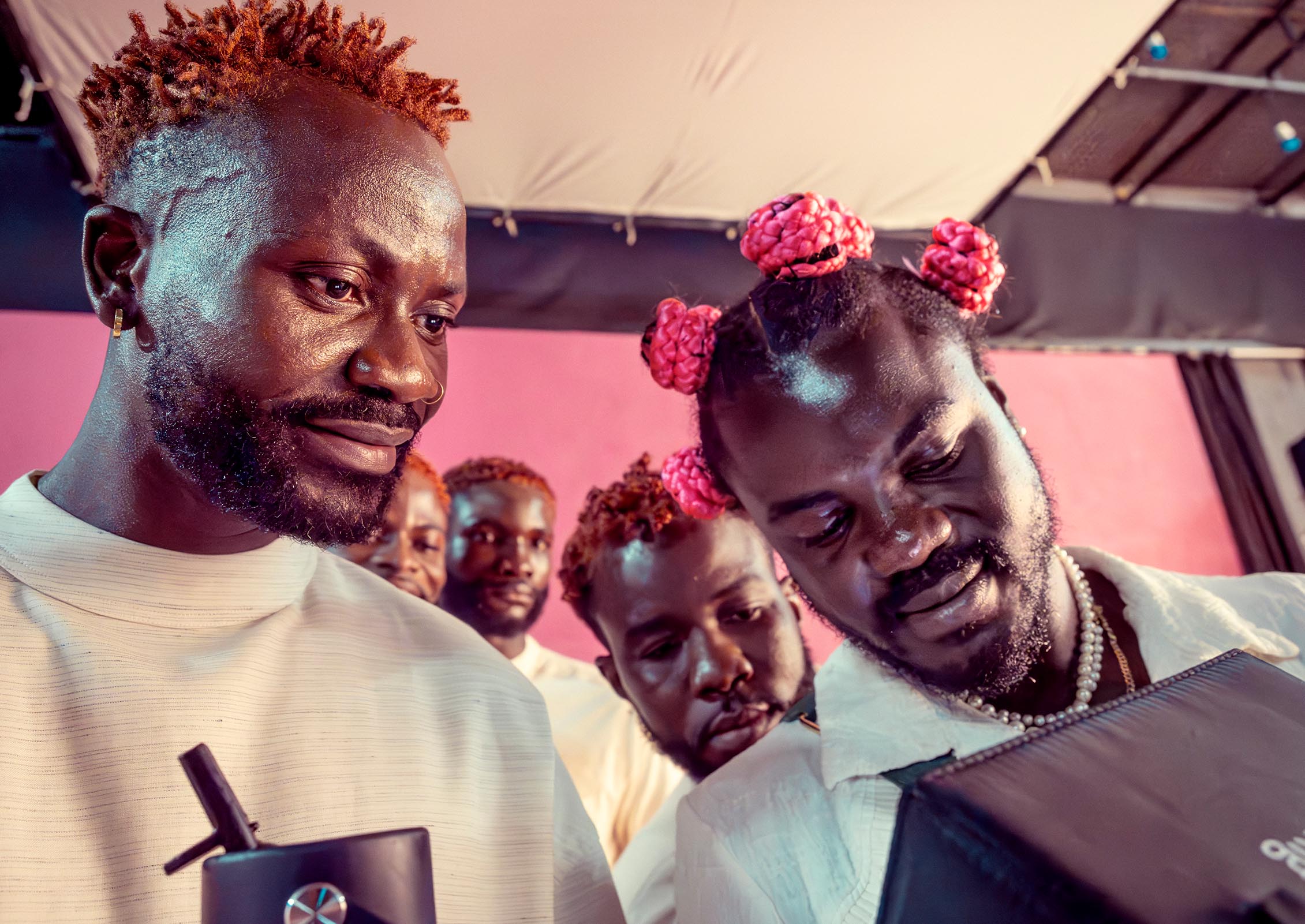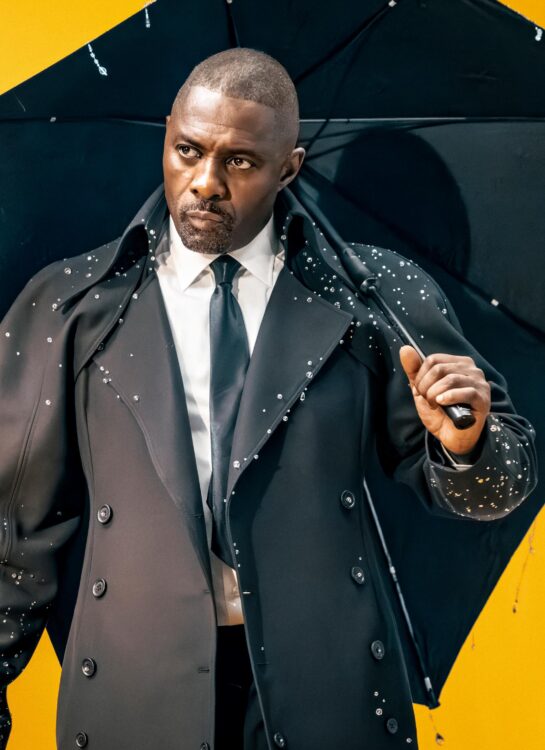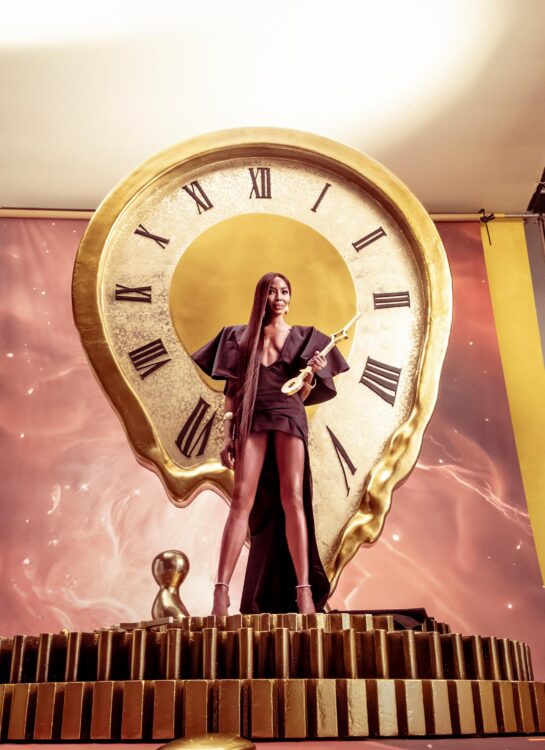- Words Notion Staff
Ghanaian photographer Prince Gyasi reflects on breaking boundaries, being original and how to inspire a generation.
2024 marks 60 years of the Pirelli Calendar: a creative initiative that sees trend-setting photographers snapping contemporary culture with their own twist. Following the footsteps of Karl Lagerfeld, Bryan Adams and others, Accra-based Prince Gyasi will take over next year’s edition.
Rising to prominence at 16 with vibrant iPhone-led photography, Prince has since become one of the most celebrated visual artists of his generation. Showcasing the energy of his native Jamestown and beyond, he captures familial bonds and fellowship, telling people’s tales through a fascinatingly vivid lens.

Timelessness is the theme Prince settled on for his Pirelli Calendar. Inspired by creatives who’ve stood the test of time, the shoot incorporates bold aesthetics and elegant portraiture to illuminate his personal interpretations of the subjects. Supermodel Naomi Campbell, actor Idris Elba and singer-songwriter Tiwa Savage are just a handful in an endless list of celebs who’ve helped the 28-year-old bring his vision to life.
Split between London and Ghana, the shoot captures the essence of Prince’s career thus far. Accra is where he nurtured his early passion for photography, but over the past 12 years, he’s found fans in England and beyond. Nevertheless, his work has always been about shooting the community around him.
To celebrate such a milestone moment both for Prince and Pirelli, we spoke with the photographer about breaking boundaries, being original and how to inspire a generation.

Your first photos were shot on an iPhone at aged 16. But what originally got you into photography? I read that, beforehand, you wanted to be an abstract painter…
It started when I was a kid. My mum used to work in a market and there was this photographer’s studio next to it. She would drop me off there and the owner would take me around the market to shoot the market woman.
Anytime my mum would travel she would ask me, ‘What do you want?’ and I always asked for a disposable camera. My background is in IT and pure art, so I had the digital and practical parts already. That’s when I got introduced to photography.
This will be the first time that the Pirelli Calendar has been shot in Ghana. Why is it important for you to keep spotlighting your home country and, as you’ve shot the place many times before, how have you made your work stay so fresh and interesting?
At the end of the day, I always have to be original. I wanted to stay true to myself and tell people things they don’t know about me. We have people like Idris Elba, Angela Bassett and Jeymes Samuel and all these people I looked up to as a kid. It’s always about being original.
How did you find casting the project and what do you think the subject matters collectively represent?
Some of them I met during my journey to the top. I used to look up to them, and then when I met them in person, I had the same view of them and what they represent. And to me, the common word I chose was timeless. It’s not about how long they’ve existed, the emphasis is on the quality of their work. When I was doing the calendar, I had to think about that word and who fits best within it. That’s how I approached it.
You’re the founder of the nonprofit organisation Boxed Kids, which provides education and creative outlets to underprivileged kids in Jamestown. Since you started the organisation, have you noticed a change in attitude or perception towards education and the creative industries in Ghana?
It’s important for me to set up a space where I can have these kids learning to code and program. I also want them to learn construction, assemblage, sports and music, not just things in arts and design. I want these kids to have the opportunity to live their dreams.
It’s important for me to invest back into the community and make sure we stop that cycle, the generational curse that’s happened. My mom was fortunate enough to live off her talents, making clothes and singing, and have success with them too. It’s my money, I’m not getting it from another organisation. You don’t know where these kids could be in 10 years’ time.


Is there anything that you haven’t done yet that you’d like to do for it?
Yes, I’m talking to companies that I’ve worked with before and we’re trying to do something. I’ve seen kids make cars out of tins, and they use remotes to control them. They could have been making toys from a young age but they don’t have the training to be able to acquire information on how to work in construction.
Recently, your work has been displayed at exhibitions in Brazil, Japan and France. Why do you think that your work connects with so many people?
Because it’s original and problems are everywhere. We all need water, we all need love, you know, it doesn’t matter what language you speak.
What’s next for Prince Gyasi? Beyond this calendar, how else are you looking to satisfy your creative itches in 2023?
I’ve been talking with companies about large installations, I’m going into loads of different things! I think the next things you will see me in are tech, film, fashion and installations.
If you could do a large installation anywhere, where would you do it?
The installation I’m preparing is going to be everywhere. It’s making sure people are able to access it. I can’t talk much about it but, trust me, it’s going to be very interesting and original.
Discover more about the 2024 calendar here.

